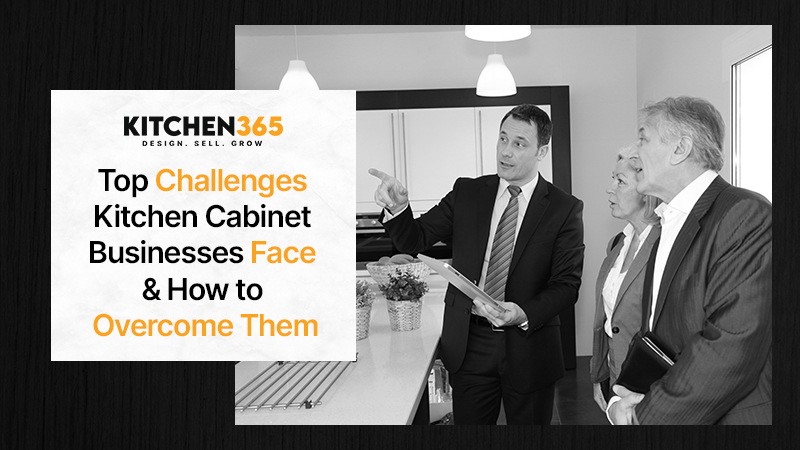

22 May Top Challenges Cabinet Businesses Face & How to Solve Them
Challenges Cabinet Businesses Face & How to Overcome Them
Running a cabinet business comes with its fair share of challenges. From rising costs to shifting consumer preferences, cabinet dealers and manufacturers must navigate various obstacles to stay competitive. Understanding these challenges and implementing practical solutions is key to long-term success.
Highlights:
-
Cabinet businesses face challenges such as rising costs, labor shortages, changing consumer preferences, and competition from RTA furniture.
-
Effective solutions include supply chain optimization, automation, competitive hiring strategies, inventory management, and staying ahead of design trends.
-
Reducing project cancellations, improving supplier relationships, and emphasizing custom cabinetry’s quality can help businesses maintain profitability.
-
Kitchen365 provides tailored solutions, including marketing automation, eCommerce, lead generation, and ERP integrations, to help cabinet businesses overcome these challenges and grow successfully.
Major Challenges for Cabinet Businesses
The cabinet industry is evolving rapidly, but along with opportunities come significant challenges that can impact profitability and customer satisfaction. From rising costs to shifting consumer preferences, cabinet businesses must navigate various obstacles to stay competitive. Below, we explore some of the most pressing issues facing the industry and provide strategic solutions to overcome them.
Rising Costs
One of the biggest hurdles in the cabinet industry is managing escalating costs. Several factors contribute to this issue:
Materials: The cost of wood, hardware, and finishes continues to rise due to supply chain disruptions and inflation.
Labor: Skilled labor shortages have driven up wages, making it harder to maintain profit margins.
Overhead: Rent, utilities, and transportation expenses are also increasing, adding further financial pressure.
Solution
To combat rising costs, cabinet businesses should optimize supply chains, negotiate with suppliers, and invest in automation. Streamlining procurement processes, purchasing materials in bulk, and leveraging relationships with multiple suppliers can reduce costs and improve profitability. Additionally, adopting automation in manufacturing can reduce waste and improve efficiency.
Labor Shortages
The demand for skilled cabinet makers and installers often exceeds the available workforce. Many businesses struggle to find qualified employees, leading to project delays and customer disappointment.
Solution
Cabinet businesses can address labor shortages by offering competitive wages, investing in training programs, and leveraging technology. Partnering with trade schools, implementing apprenticeship programs, and using CNC machines to reduce manual labor can help bridge the gap. Retaining skilled workers through a strong company culture and career growth opportunities also ensures a stable workforce.
Changing Consumer Preferences
Homeowners demand more customization, sustainable materials, and modern design aesthetics. Cabinet dealers are adapting to these trends by embracing:
Two-tone cabinets
Minimalist designs
Eco-friendly finishes
Smart storage solutions
Solution
Businesses can stay ahead of trends by conducting market research, refreshing product lines, and using 3D design tools to showcase options. Partnering with interior designers and offering interactive online catalogs can help attract trend-conscious buyers.
Project Turnovers and Cancellations
Unforeseen economic shifts or client financial issues can lead to project delays or cancellations, affecting revenue.
Solution
To minimize cancellations, cabinet businesses should:
Diversify their client base to avoid dependency on a few customers.
Require upfront deposits to secure project commitments.
Maintain strong relationships with contractors and developers to guarantee a steady pipeline of projects.
Offer flexible financing options to customers, making high-ticket purchases more manageable.
Inventory Management
Balancing stock levels is a delicate task. Overstocking can lead to unnecessary storage costs while understocking results in delays.
Solution:
Implementing inventory management software, forecasting demand accurately, and optimizing warehouse space can streamline operations and improve cash flow. Adopting just-in-time (JIT) inventory strategies and working with suppliers who offer quick restocking options can strengthen efficiency.
RTA Furniture Competition
Ready-to-assemble (RTA) furniture has gained popularity due to affordability and convenience. This trend challenges traditional cabinet manufacturers and dealers.
Solution:
Emphasizing quality, customization, and durability in marketing efforts can help separate custom cabinetry from mass-produced alternatives. Highlighting craftsmanship, longevity, and the ability to tailor cabinets to specific customer needs can create a strong selling proposition.
Longer Lead Times
Supply chain disruptions and material shortages have increased lead times, frustrating customers and delaying projects.
Solution:
Cabinet businesses should build relationships with multiple suppliers, maintain a strategic stock of essential materials, and communicate transparently with clients about timelines. Pre-ordering high-demand materials and optimizing production schedules can help reduce waiting periods.
Partner with Kitchen365 to Overcome Niche Challenges
Kitchen365 offers tailored solutions for cabinet dealers and manufacturers to streamline operations and grow their businesses. From marketing automation and eCommerce solutions to lead generation and ERP integrations, Kitchen365 provides the tools necessary to overcome industry challenges and improve efficiency.
Customized Strategies for Cabinet Dealers’ Unique Needs
Every cabinet dealer and manufacturer faces distinct challenges, whether it’s managing complex inventory, optimizing online sales, or generating high-quality leads. Kitchen365 understands these pain points and provides customized strategies to address them. Cabinet dealers can leverage Kitchen365's solutions to stay competitive and scale their businesses effectively.
Key Takeaways
Rising costs can be mitigated through supply chain optimization, bulk purchasing, and automation. Addressing labor shortages requires competitive wages, training investments, and the use of technology. Adapting to changing consumer preferences ensures continued relevance in the market. Effective inventory management prevents stock issues and optimizes cash flow.
Positioning custom cabinetry as superior to RTA furniture can boost sales. Strengthening supplier relationships and communication helps reduce lead times. Kitchen365 provides solutions to help cabinet businesses navigate industry challenges and achieve success.
By implementing these strategies and partnering with Kitchen365, cabinet businesses can thrive in a competitive market.
Frequently Asked Questions
How can cabinet businesses reduce rising material costs?
To manage costs effectively, businesses can negotiate better supplier contracts, optimize their supply chain, invest in automation, and source alternative materials without compromising quality.
What strategies can help address labor shortages?
Improving staff retention through competitive wages, training programs, automation, and fostering a positive workplace culture can help businesses retain skilled workers and attract new talent.
How can cabinet businesses keep up with changing consumer preferences?
By constantly tracking market trends, offering eco-friendly products, using 3D visualization tools, and providing custom cabinetry solutions, businesses can stay relevant and appeal to modern homeowners.
What’s the best way to manage inventory effectively?
Implementing inventory management software, forecasting demand accurately, and optimizing warehouse space can prevent overstocking and stock shortages, ensuring smooth operations.
How can traditional cabinet businesses compete with RTA furniture brands?
By emphasizing the quality, durability, and customization options of custom cabinetry, traditional cabinet businesses can differentiate themselves from mass-produced RTA furniture. Providing personalized customer service and high-end craftsmanship can further set them apart.
How does Kitchen365 help cabinet businesses overcome these challenges?
Kitchen365 offers marketing automation, eCommerce solutions, lead generation, ERP integrations, and tailored business strategies to help cabinet dealers streamline operations, improve efficiency, and boost sales.
Is Kitchen365 suitable for small cabinet businesses?
Yes, Kitchen365 provides scalable solutions that help small and growing cabinet companies compete effectively in the market by enhancing their online presence, improving lead generation, and automating business operations.

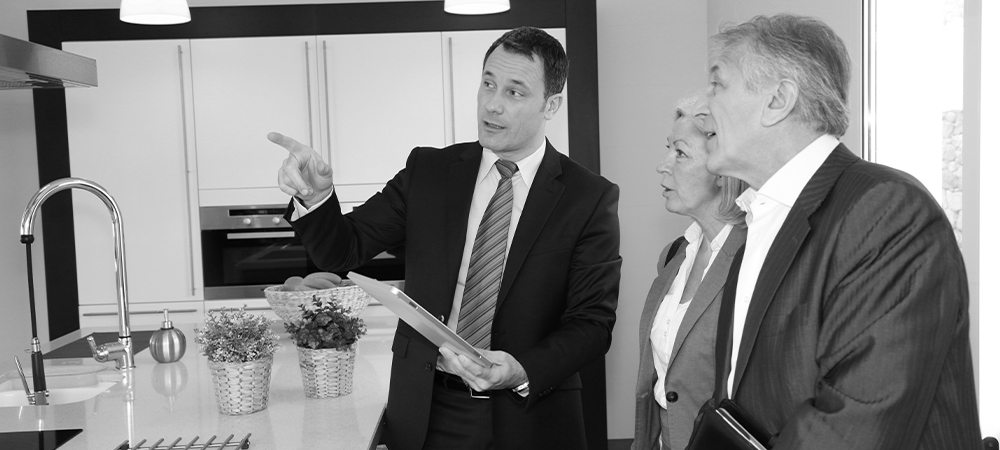
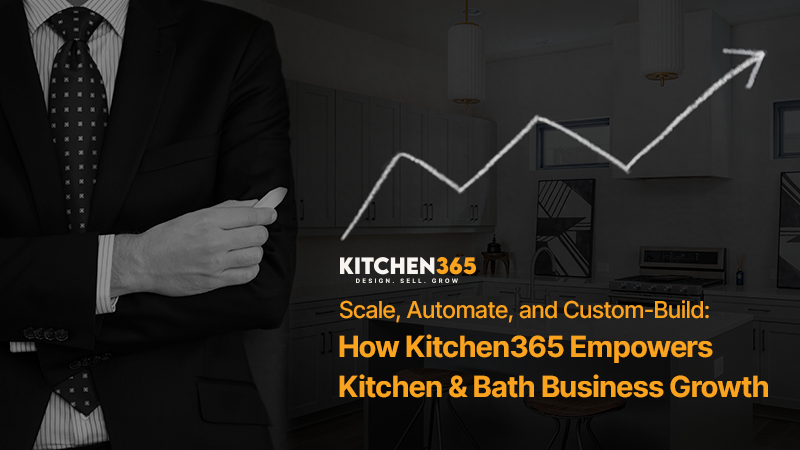
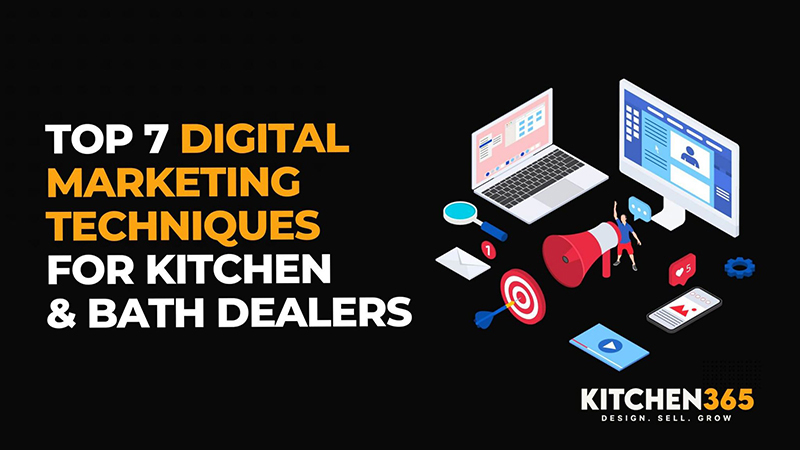
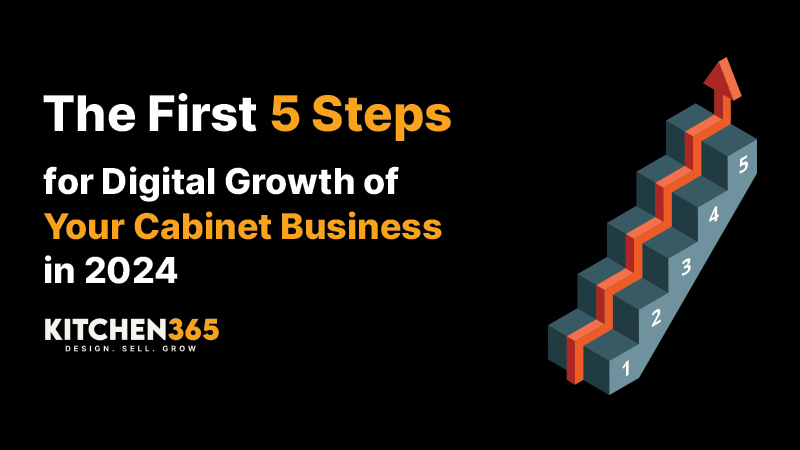

Sorry, the comment form is closed at this time.